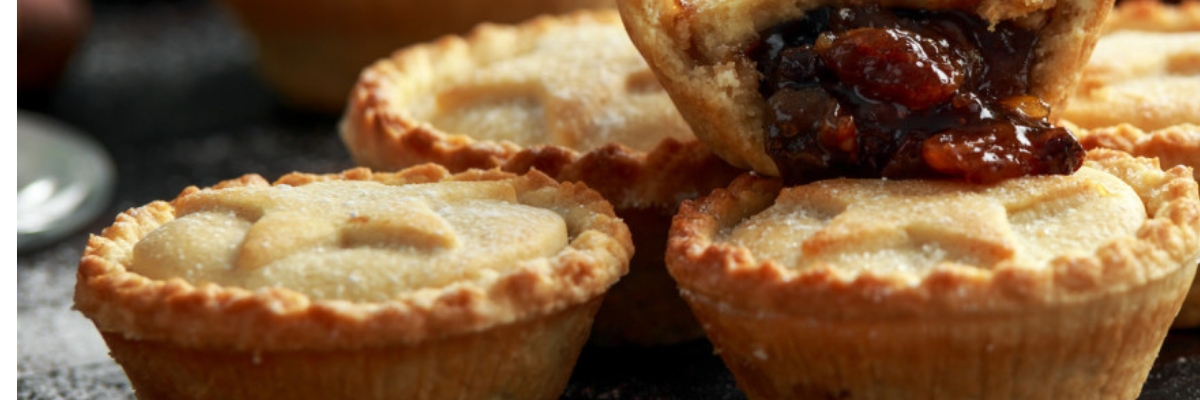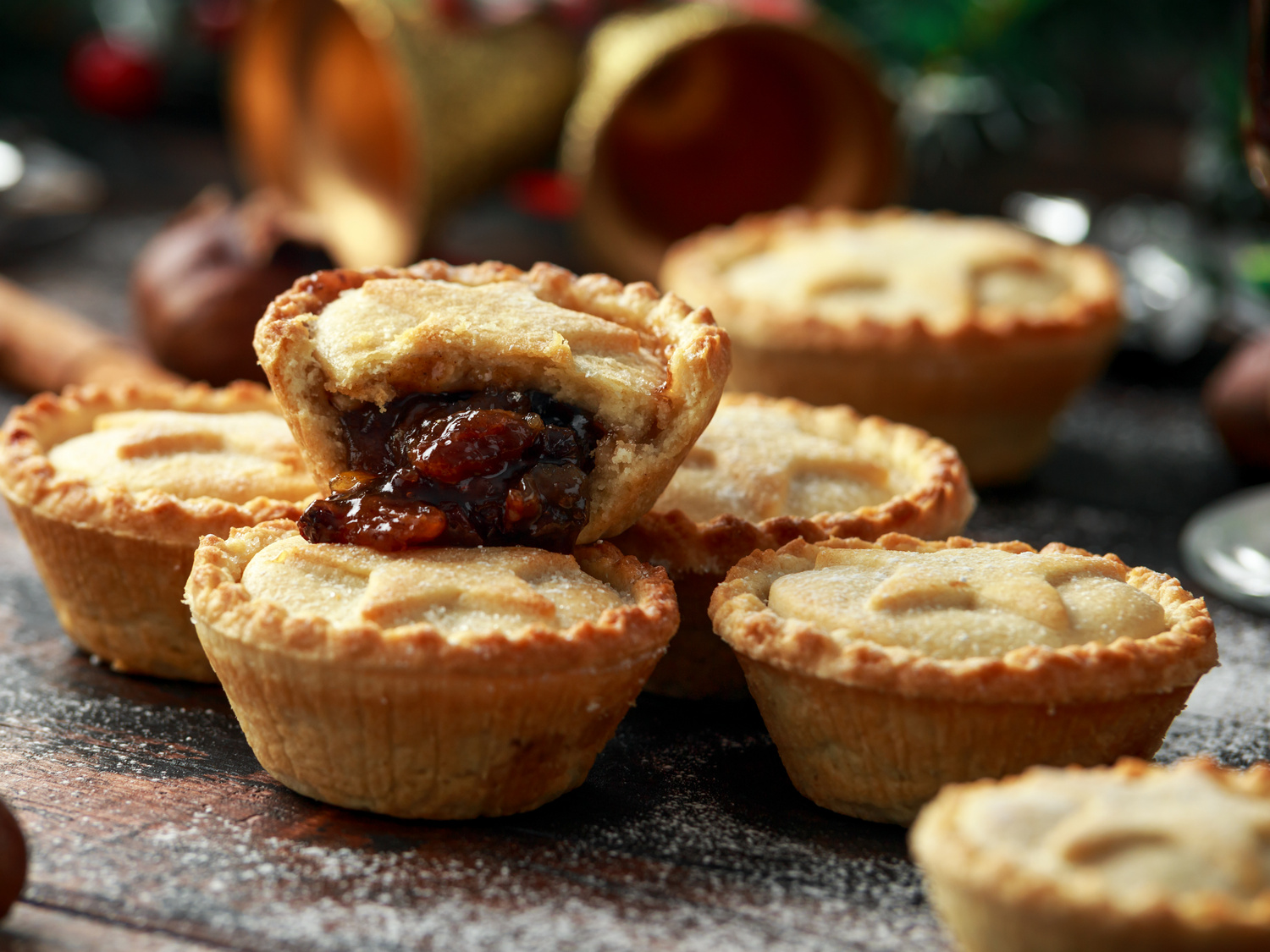Do you need help?

Can dogs eat mince pies?
Mince pies contain raisins, which are poisonous to dogs. Many festive foods, including traditional mince pies, can pose significant risks to dogs during the Christmas season.
These delightful pastries are typically filled with dried fruits, suet, and spices wrapped in a buttery crust. Raisins, grapes, sultanas, and currants can lead to acute kidney failure and even death in dogs. Even a small amount can cause severe problems for them.
Why are mince pies dangerous for dogs?
In addition to toxic raisins, mince pies may contain lots of fat and sugar, which can cause stomach upset in dogs. Other ingredients, such as chocolate or sugar substitute xylitol, found in some mince pies, are also highly toxic to dogs.
Furthermore, mince pies are often packaged in foil casing, which could pose a risk if your dog eats them.
Symptoms of mince pie poisoning
If your dog has eaten a mince pie, you should contact your vet immediately for advice, even if they don’t seem ill. Symptoms may include:
- vomiting and diarrhoea (possibly with blood present)
- abnormal drinking or urination
- increased drooling
- lack of appetite
- weakness or wobbliness when walking
- lethargy
- blood in your dog’s urine
Signs normally start showing between six and 12 hours after your dog has eaten them, with organ damage developing within 24 to 72 hours of exposure. But these may not take effect for several days.
My dog ate mince pies, what should I do?
Take the mince pie and any casing away from your dog and call your vet or, out-of-hours, your nearest Vets Now clinic. They will be in the best position to offer advice on next steps.
In some cases, the vet may need to perform induced vomiting to prevent further health complications.
If your vet asks you to bring your dog into the clinic, take a sample of whatever they’ve eaten and , if possible, the wrapper or box it came in. Even if your dog appears fine, getting them checked by a vet as soon as possible is essential.
Do not try to give your dog salt water or induce vomiting at home.
Can a mince pie kill a dog?
Dogs treated for raisin toxicity generally have a very high chance of survival if treatment is quick and early and there’s been no kidney damage.
However, if treatment is delayed and there are signs of kidney damage, a dog may suffer lifelong health issues or, in the most severe cases, lose their life.

What will the vet do if my dog eats a mince pie?
There is no direct antidote for raisin toxicity, so if your dog has eaten a mince pie, it’s vital that they receive treatment as early as possible to maximise the chance of a successful outcome.
Treatment for raisin toxicity may involve your dog receiving medication to induce vomiting and activated charcoal to help eliminate toxins from the intestines.
Your dog may be placed on intravenous fluids (a drip) to support kidney function and rehydration. Typically, the vet will also check your dog’s kidney values and may perform an ultrasound scan to look at the kidneys. If these tests indicate kidney damage, then more intensive treatment will often be required.
Mandisa Greene, Medical Director at Vets Now says: “Mince pies may smell tempting to your dog, but they contain raisins and other ingredients that can be highly toxic. Even a small amount can harm your pet’s kidneys, so it’s best to keep them well out of reach. If your dog ends up eating mince pies, acting quickly gives them the best chance of staying healthy.”
How do I prevent my dog from eating mince pies?
To keep your dog safe during the festive season, follow these essential tips:
- Keep mince pies out of your dog’s reach including if leaving one out for Santa.
- Avoid leaving mince pies unattended, as dogs can quickly snatch a snack.
- Dispose of mince pie wrappers and packaging properly to prevent your dog from scavenging.
- Educate your family and friends about the dangers of mince pies for dogs and ask them to keep these treats out of reach.
Being aware of the potential dangers of mince pies and other festive foods can help keep your dog safe and healthy during the holiday season. Enjoy the festivities but always keep an eye on your furry friend to ensure they stay out of harm’s way.

